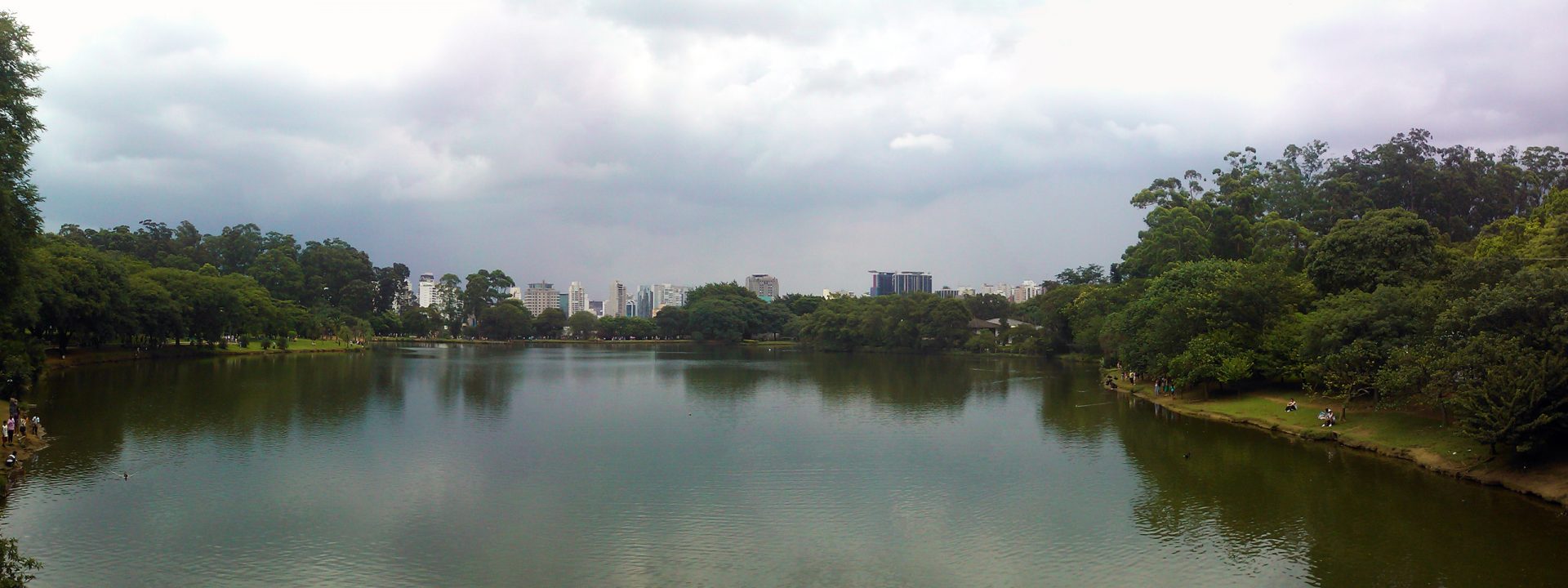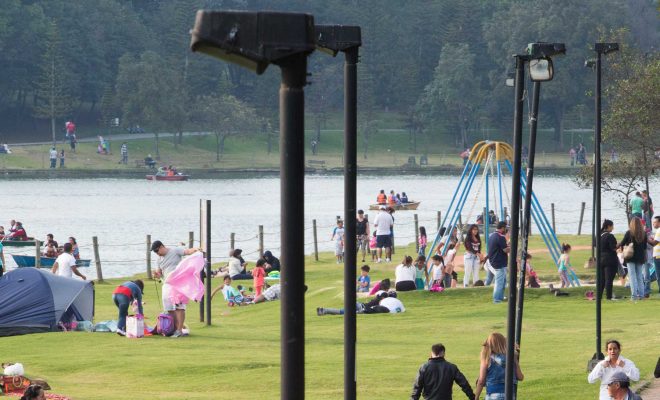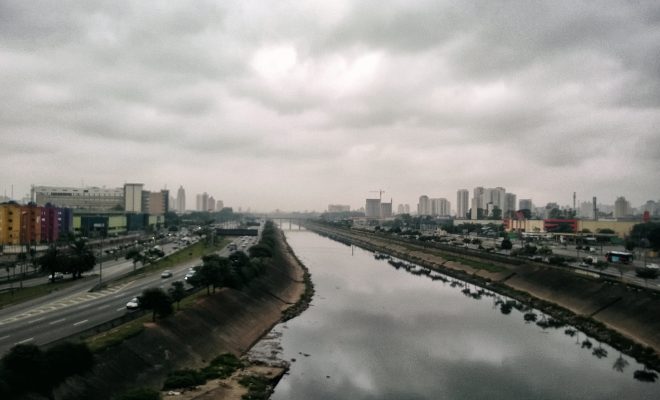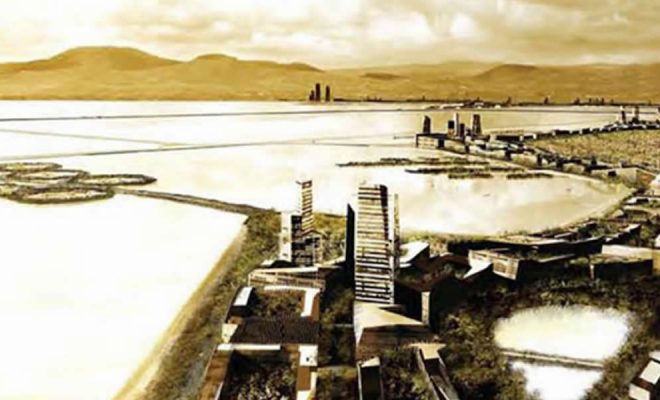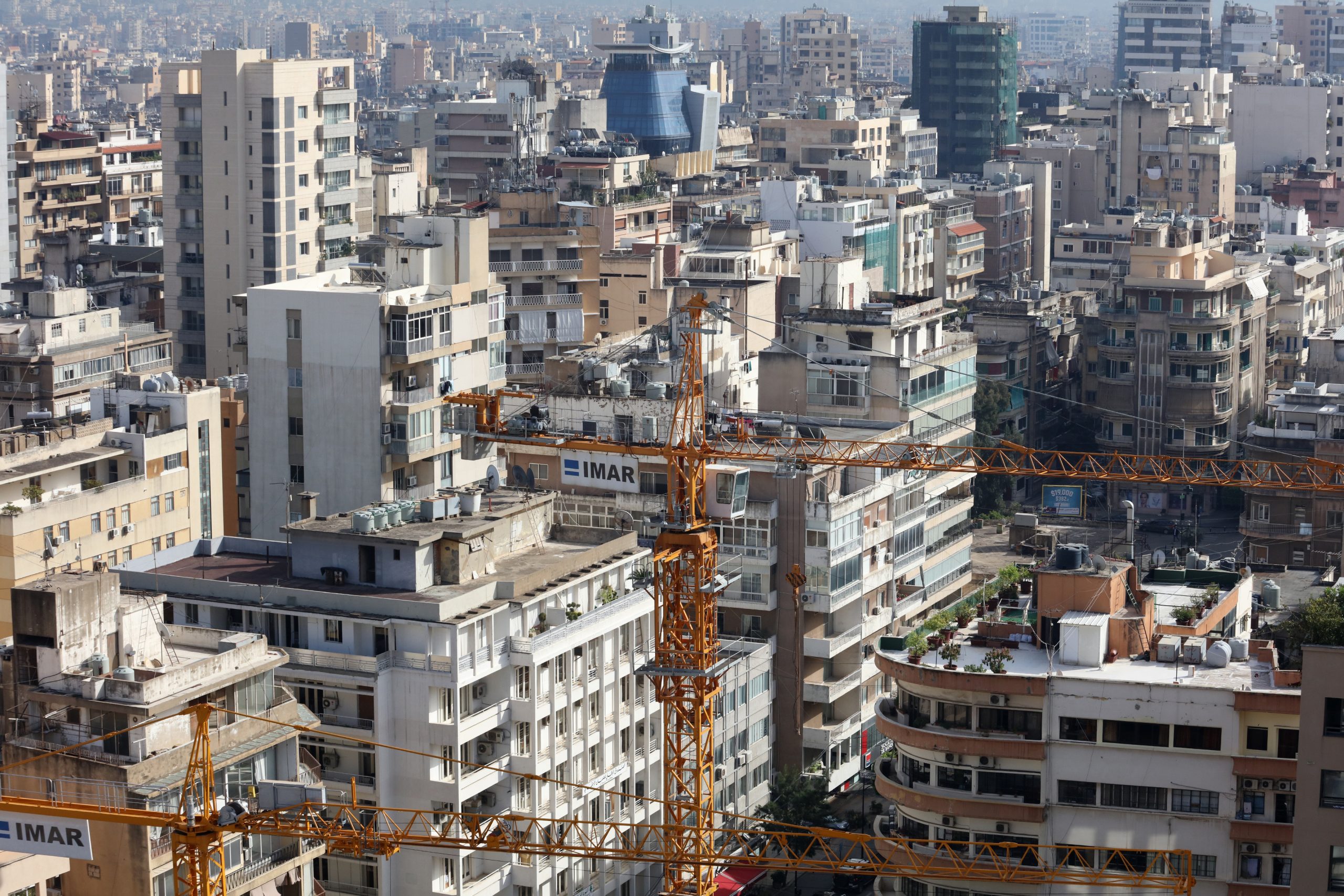
© Dominic Chavez/World Bank
Water safety needs to bring architects and designers on board. The Earth will soon become an “urban planet”: World Bank forecasts indicate that by 2050, at least two out of three people in the planet will live in large cities. If the current demographic growth trend continues, at the end of the century the Earth will have a population of 11.2 billion people and 85% to 90% of it will live in cities. From the practical point of view, mankind will have become a species that lives on an asphalt layer and in concrete, glass and steel buildings.
Scientists and geographers warn that, by the time this happens, mankind must have solved the problems that have turned many of the existing cities into unsustainable models: sources of pollution, energy waste, climate alteration and hydric imbalance. It is the essence of the Sustainable Development Goal 11: “Make cities and human settlements inclusive, safe, resilient and sustainable”. Without an adequate management of water and sanitation this will not be possible.
Smart Water: the importance of an all-encompassing perspective
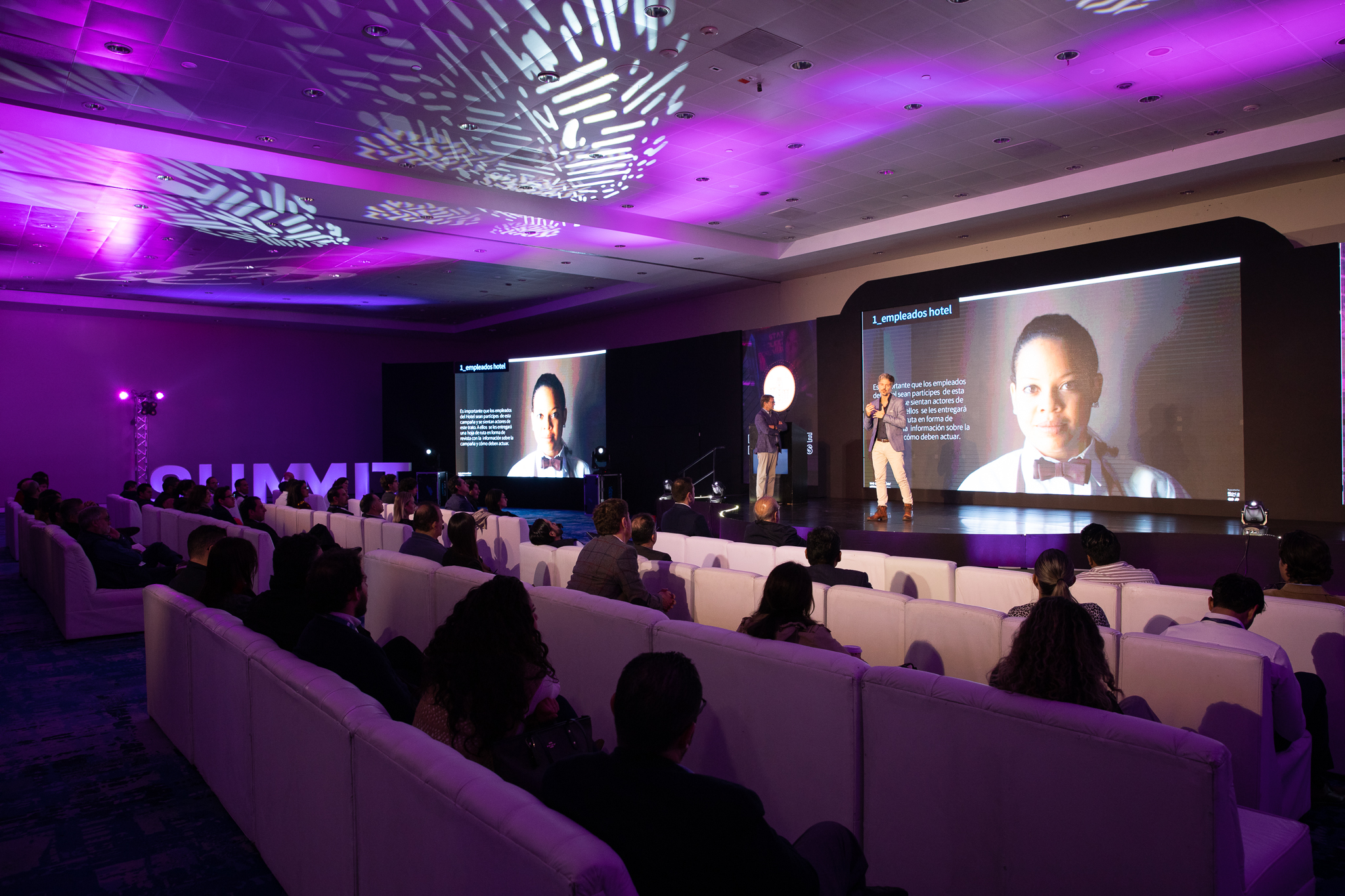
Aware of this challenge, the Foundation created the Smart Water platform in 2014 to foster an all-encompassing vision and to develop ideas and initiatives on the sustainable use of water in architecture, design and the planning of urban services and tourist facilities; crucial disciplines and sectors to achieve sustainable buildings and cities and as a consequence, sustainable life on the planet.
The basis of the platform is the celebration of the International Smart Water Sessions: meetings of professionals from the architecture, urban planning and design sectors and experts in the water sector to present and share ideas and foster a creative debate that can be passed on to society as a whole.
The first Smart Water, Smart Cities meeting was organized in Mexico City in 2014, focusing on architecture and Smart Cities; these sessions took place in Barcelona in 2016 and in Madrid in 2018. Smart Water, Smart Destinations addressed the issue of tourist destinations and hotel development in Mexico City in 2015. The retail and mixed use spaces were the focus of the sessions that took place in the Mexican capital in 2017, Smart Water Smart Shopping.
Smart Building: one step further
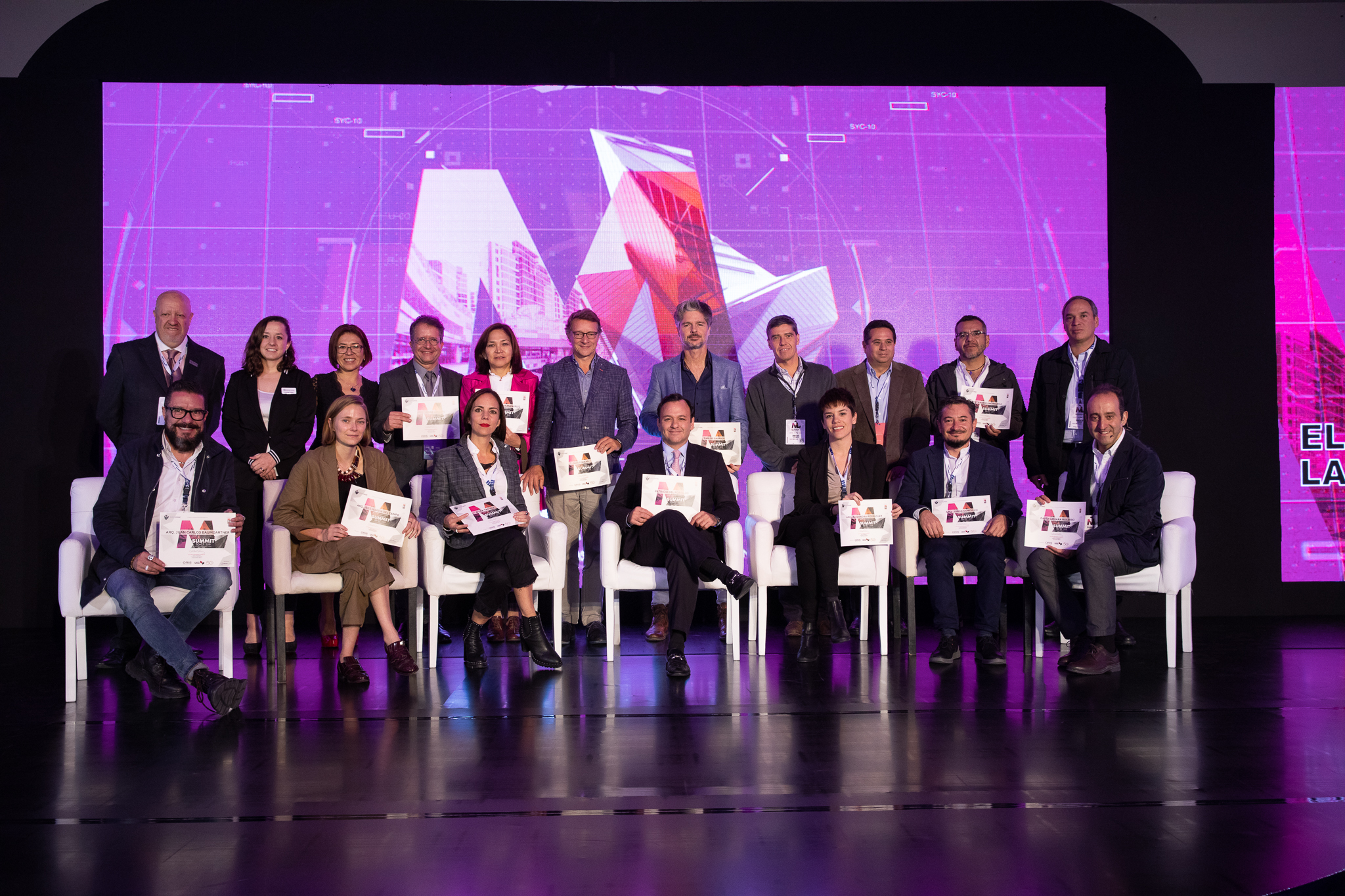
The We Are Water Foundation took a step further in the development of the Smart Water concept and held the Smart Water, Smart Building sessions in Mexico City on the 17th October, as part of The Construction Summit, one of the events of the Expo CIHAC trade fair, the most important in the construction business in Latin America.
This session gathered leading international architects such as Jorge Arditti, Gabriel Morales, Juan Carlos Baumgartner , Inés Martín del Campo, Alejandra Rodriguez, Patricio del Portillo, Jorge Gordillo, and the textile designer Nyra Troyce, who debated with Xavier Torras, director of the We Are Water Foundation and Carlos Garriga, Project Manager of the Foundation.
Susana Miranda, president of the Architects Association of Mexico City and the Mexican Society of Architects, opened the session by remembering the first Smart Water, Smart Cities initiative held in Mexico City in 2014, and mentioned how important it is for architects as a collective to acquire values that, through their work, directly influence a better and more sustainable management of limited natural resources, especially water.
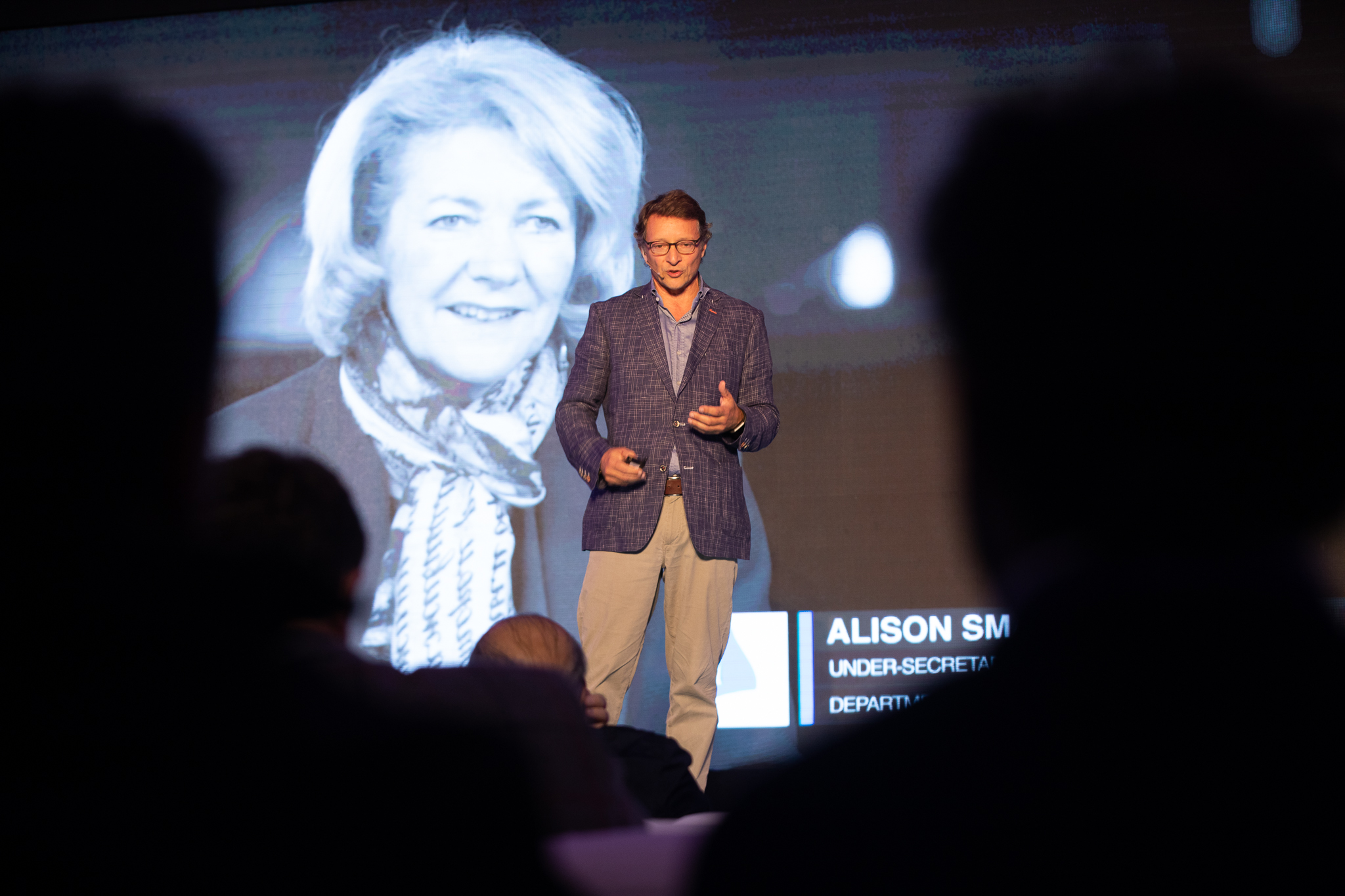
Xavier Torras presented the Foundation and the Smart Water philosophy; next, Carlos Garriga explained the aid projects and one of the initiatives arising from Smart Water: Let’s Make a Deal, a project conceived for hotel chains and tourist resorts to develop good practices in the use of water and environmental sustainability specially involving their guests.
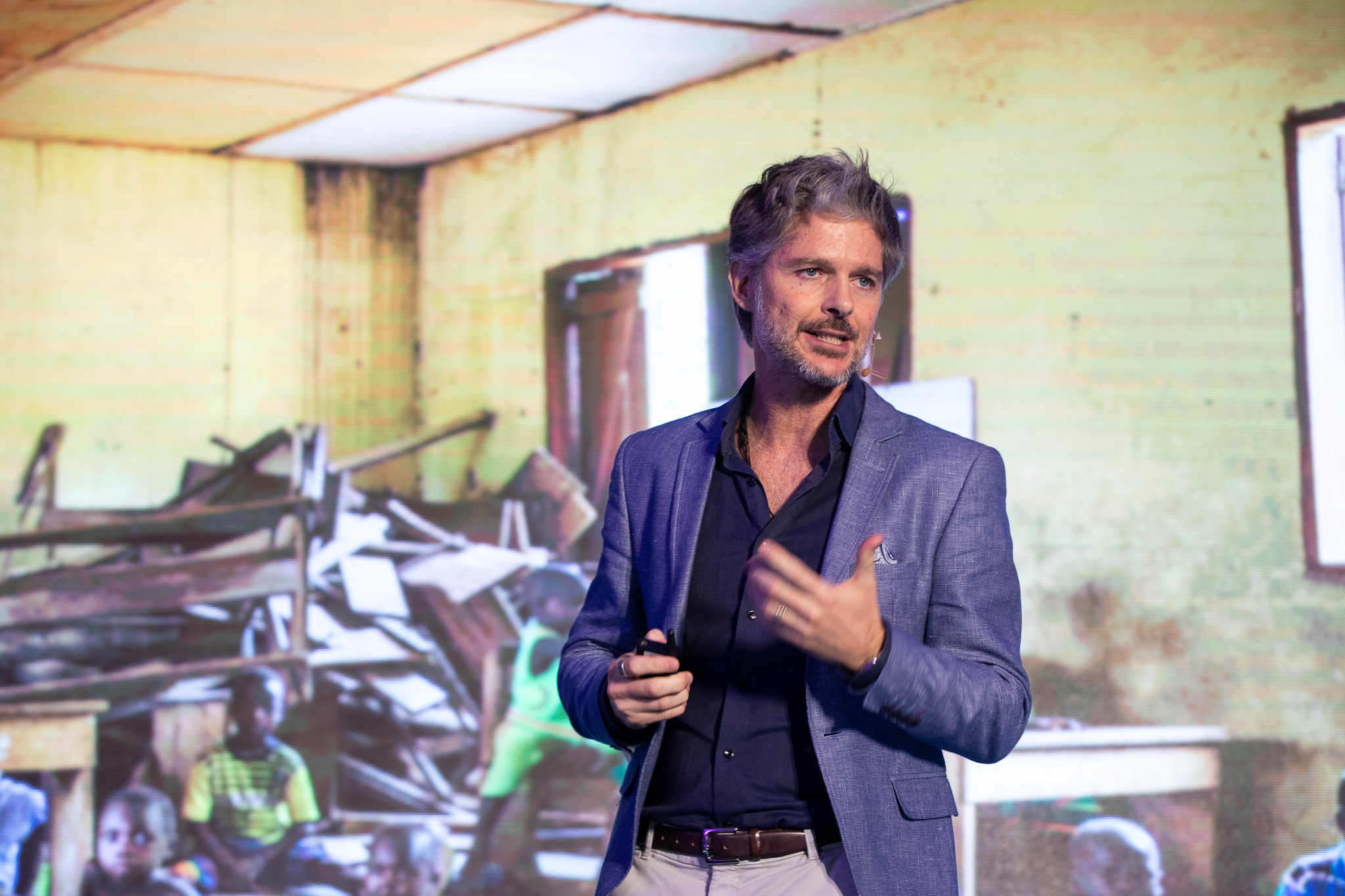
Then David Cámara, Project Leader of Smart Water, highlighted Mexico’s creative importance, in particular that of its architecture and design sectors, and its capacity to have an influence on society in terms of consumption habits that imply a more responsible management of water and mitigate the effects of climate change.
Cámara moderated the debate presented by Jorge Arditti, ambassador of We Are Water in Mexico, and Gabriel Morales, appealing to the value and responsibility of architecture and design to assist in the improvement of water management and highlighting their capacity to influence consumption habits in society, thus helping to better manage the use of water by the end user.
Juan Carlos Baumgartner, Inés Martín del Campo, Patricio del Portillo, Jorge Gordillo, Nyra Troyce and Alejandra Rodriguez participated in the debate. The complementarity of their professional profiles accounted for the richness in the discussion and provided a vision from the perspective of companies, the management of projects and real estate assets and real estate development. They agreed on how to achieve a better and greater positive social impact of their work. In this sense, they highlighted the importance of sharing the individual awareness of each professional with all others as an essential condition to develop projects that really generate a positive contribution to society.
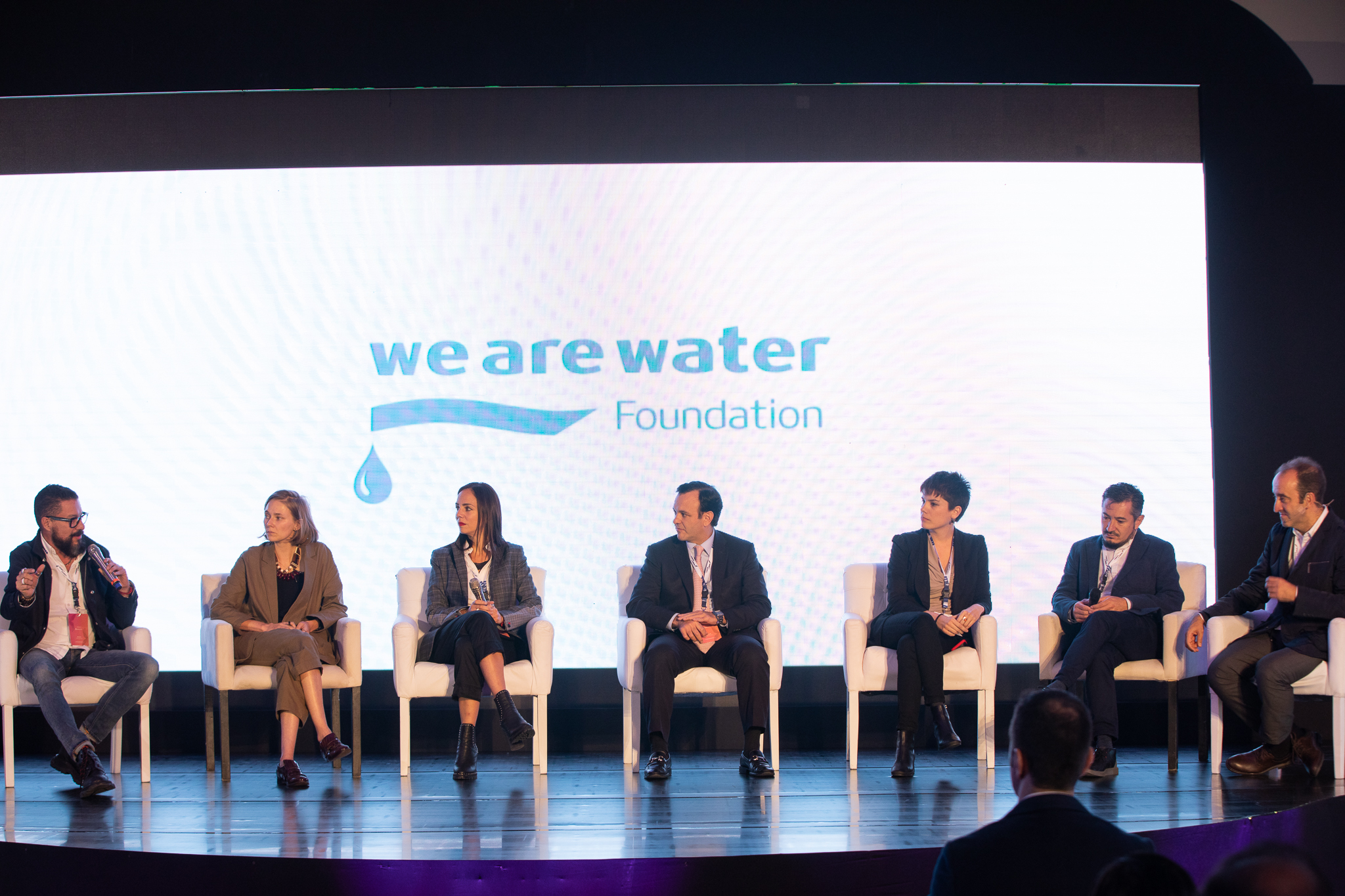
All participants insisted on generating responses that differ from traditional models solving problems in a linear way and evolve towards a more all-encompassing model when it comes to thinking, designing, developing and constructing a building, a public space or any other architectural project. Even the interdisciplinary models for learning and project development are falling short in view of the challenges addressed by architecture. The great challenges such as the mitigation of and adaptation to climate change and water safety are exponentially growing and can be addressed from architecture and design by creating networks of experimentation and shared knowledge that provide new and better responses.
In this sense, experts valued the philosophy of the Smart Water platform, providing an all-encompassing vision of architectural projects through water, a pioneering initiative.
They all indicated the need to extend this message to society, and especially to companies and professionals linked to the world of architecture, design and urban planning projects. The problem of water safety cannot be solely solved by those companies and professionals working in the water sector. All other professional and business sectors that are directly or indirectly related to it need to be proactively incorporated. The future depends on the cities being fully smart, and therefore fair and sustainable. Water will make it possible.


